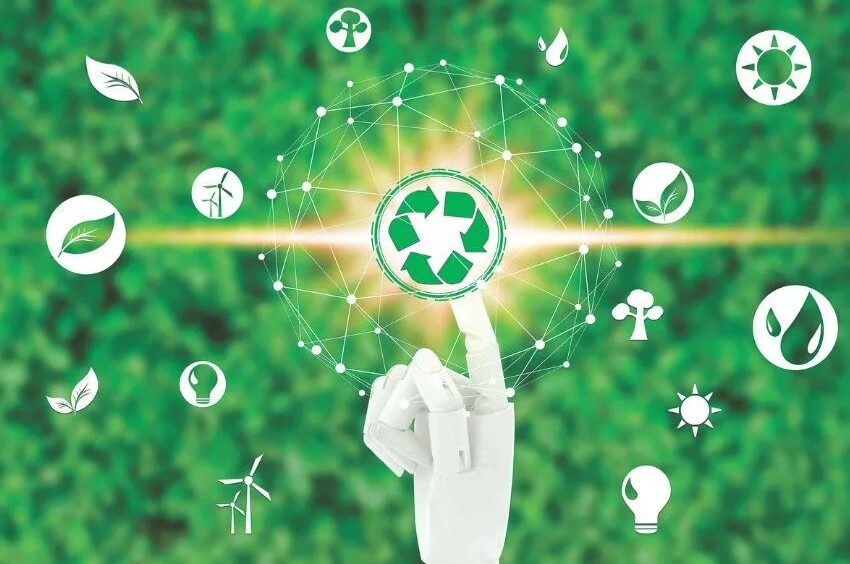Sustainability Shifts From Compliance To Core Of India’s Biz Model

Experts believe that sustainability is no longer a standalone function – it is central to how the company builds infrastructure across geographies
From carbon neutrality targets to biodiversity restoration and ESG-linked executive pay, Indian companies are embedding sustainability deep into their business strategy – not as a tick-box compliance exercise but as a driver of long-term value, risk resilience, and competitive advantage. On World Environment Day 2025, BW Businessworld spoke to senior leaders across infrastructure, real estate, manufacturing, finance, and FMCG to understand how climate concerns are transforming the business core.
Sustainability Is Rethinking Infrastructure
Industry experts said that sustainability is no longer a standalone function – it is central to how the company builds infrastructure across geographies. Lalitkumar Tiwari, President – EHS and Chief Sustainability Officer, Kalpataru Group, said that Kalpataru’s targets are crystal clear: carbon neutrality by 2040, water neutrality by 2032, and zero construction and debris waste by 2035. These goals are already shaping partner selection, investment strategy, and risk frameworks. “Building environmental resilience into our business is not a choice. It is essential for long-term success,” Tiwari said.
Marking the company’s effort, he claimed, “We have achieved carbon neutrality for scope 1 and 2 emissions across our international transmission and distribution operations for the second year.” The company has also commissioned a 3 MWp solar plant in Uniara and invested in long-term CSR programmes like the ‘Savior initiative,’ which has restored forest cover and biodiversity in Odisha’s Mayurbhanj district.
Creating ESG-positive Products
Godrej Industries Group’s Ramnath Vaidyanathan said that its journey began over a decade ago when ESG was far from mainstream. “At the very outset, when we created our first Good & Green strategy in 2011, none of the goals had anything to do with compliance,” noted Ramnath Vaidyanathan, AVP – Good & Green. Since then, Godrej has embedded climate risk assessment using frameworks like TCFD into site planning, manufacturing, and product development.
Whether it is water stewardship at stressed sites or green chemistry in speciality chemicals, Vaidyanathan added that sustainability is seen as both a risk mitigator and a business opportunity. “Over a third of our leaders have planet goals. ESG performance accounts for 15 per cent of executive compensation,” he claimed.
Sustainability, A Smart Business Move
Shapoorji Pallonji Real Estate (SPRE) is taking a full-lifecycle approach to sustainability – from climate-resilient site selection to rooftop solar and green certifications like IGBC, EDGE, and Griha. “We assess climate-related risks during project feasibility to ensure resilience against flooding, water scarcity, and rising temperatures,” said Sriram Mahadevan, CEO – SPRE and MD, Joyville Shapoorji Housing.
The developer tracks scope 1, 2, and 3 emissions via a structured ESG dashboard and reviews metrics quarterly. “ESG is now part of the balanced scorecard for top management. Sustainability performance directly influences leadership evaluation,” he said.
Financing the Green Shift
Mahindra Group claimed that it has mobilised over USD 500 million in green finance across verticals – from electric mobility to renewable energy. “These funds have been secured from leading impact investors like BII, Temasek, IFC, and NIIF,” said Ankit Todi, Chief Sustainability Officer, Mahindra Group.
Mahindra’s Planet Positive strategy spans both emissions reduction and building a green portfolio including net-zero homes and EVs. “Internally, climate-related goals are part of performance evaluations. Externally, we report via global frameworks and disclosures,” he added. Further, he explained that the group’s commitment dates back to 2007, reflecting sustained leadership commitment backed by strong regulatory and investor push.
Climate Volatility Is a Strategic Risk
“ESG is no longer a corporate buzzword – it must be treated with the same seriousness as financial stewardship,” said Chandni, Independent Director and Board Advisor. Indian businesses are increasingly recognising climate volatility as a core financial risk – not just in the form of stranded assets, but through systemic shocks to input costs, supply chains, and sovereign credit exposure.
She cautioned against waiting for perfect data before acting. “Tools like subnational GDP-weighted hazard overlays already provide rich insights into flood, drought, and heat exposure. Lenders and insurers must now rewire their risk assessments,” she said.
From Tokenism to Transformation
A common theme across India Inc. is the evolution of sustainability from periphery to priority. Whether it is measurable carbon goals, ESG-linked compensation, biodiversity restoration, or green finance, companies are actively reshaping how they operate, invest, and grow.
The transition is not without complexity – fragmented regulations, rising disclosure demands, and capital needs remain challenges. But what’s clear is that Indian businesses are no longer asking why sustainability matters. They’re asking how fast they can get there.






































































































































































































































































































































































































































































































































































































































































































































































































































































































































































































































































































































































































